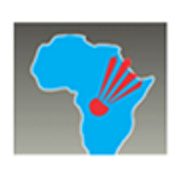𝗟𝗨𝗜𝗦 𝗙𝗘𝗥𝗡𝗔𝗡𝗗𝗢 𝗠𝗢𝗡𝗧𝗜𝗟𝗟𝗔
𝑆ℎ𝑢𝑡𝑡𝑙𝑒 𝑇𝑖𝑚𝑒 𝑁𝑎𝑡𝑖𝑜𝑛𝑎𝑙 𝐶𝑜𝑜𝑟𝑑𝑖𝑛𝑎𝑡𝑜𝑟 𝑜𝑓 𝑉𝑒𝑛𝑒𝑧𝑢𝑒𝑙𝑎
𝗘𝗮𝗿𝗹𝘆 𝗠𝗲𝗺𝗼𝗿𝗶𝗲𝘀
I had a happy childhood, despite being bullied at times. I was able to overcome that as my parents were my main educators. Thanks to them I learned that everything is better if we can understand, share, support, help and collaborate with our neighbours in trying to build a better world one day at a time.
I remember my first association with badminton perfectly – I was at home. I had a collection of sports encyclopedia which I always used to read. One day in 2007 when I was watching television, I heard them mention badminton during a sports programme. I quickly looked it up and started looking for the sport that was practically non-existent in the country.
My first thoughts were – Why is the ‘ball’ like this? How does it always land in that position? Badminton people must have thousands of birds to get millions of feathers and make these ‘balls’? At the time I did not know the ‘ball’ was called a shuttlecock.
𝗥𝗲𝗹𝗮𝘁𝗶𝗼𝗻𝘀𝗵𝗶𝗽 𝘄𝗶𝘁𝗵 𝗕𝗮𝗱𝗺𝗶𝗻𝘁𝗼𝗻
I had a difficult beginning with badminton. In Venezuela there was no formal badminton, nowhere to buy a racket easily, especially as I was from a city far from the capital. I had to ask a relative in another country who sent me some rackets which were so basic that the strings were damaged every day, and I had to fix them with fishing line.
With the help of friends, I created three small clubs in my city. We founded the association of our Trujillo state. I have gone from athlete, coach, director, national team coach, delegate, member of the national association and Shuttle Time coordinator. It has been an upward journey, hard but fruitful. It has been hard because there was no tradition of this sport in Venezuela and fruitful because each step means progress and satisfaction.
One of the things I have learned from badminton is empathy for Para badminton players, who teach me that anything is possible.
𝗪𝗵𝗮𝘁 𝗕𝗮𝗱𝗺𝗶𝗻𝘁𝗼𝗻 𝗠𝗲𝗮𝗻𝘀
I believe that for me badminton has become more than a sport; it has become a lifestyle, in a way of creating people of integrity. Through sport a person can be taught to that it is important to give all his effort in each activity, so that he is able to set goals and achieve them. Maybe we cannot all be badminton champions, but we can be champions of our life.
𝗜𝗺𝗽𝗮𝗰𝘁 𝗼𝗳 𝗦𝗵𝘂𝘁𝘁𝗹𝗲 𝗧𝗶𝗺𝗲
In Venezuela, the education system is based on the application of sports considered basic or traditional: volleyball, soccer, basketball, athletics and chess.
The Shuttle Time programme has been well received by teachers, since it has detailed plans on how to implement badminton in schools and other places, and presenting useful material for incorporation into education.
Due to several extraneous factors, the development of Shuttle Time in Venezuela has been slow; however, the steps taken have been on a secure foundation, which will allow badminton to grow exponentially in future.







